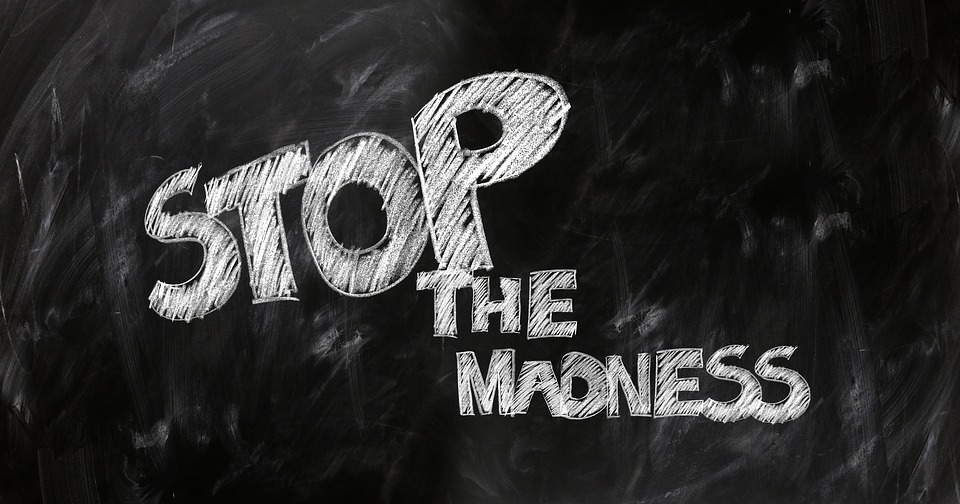Why More Men Are Relating to This Cinema Classic Today
“Falling Down,” directed by Joel Schumacher and released in 1993, tells the story of William Foster, a white-collar worker portrayed by Michael Douglas, who experiences a series of frustrations and disappointments that culminate in a violent journey through the streets of Los Angeles. The film explores themes of social alienation, disillusionment, and the impact of societal pressures on an individual’s psyche. Despite being over two decades old, “Falling Down” continues to resonate with audiences and critics alike for its poignant commentary on issues such as racism, classism, and the breakdown of societal norms. In today’s world, the themes and messages of “Falling Down” remain remarkably relevant, sparking discussions on mental health, masculinity, and the complexities of modern urban life.
Introduction to “Falling Down”
“Falling Down” isn’t your typical movie—it’s a powerful exploration of the human condition, directed by Joel Schumacher and brought to life by the talented Michael Douglas. This thought-provoking film serves as a mirror, reflecting back to us the societal issues and pressures that weigh heavily on an ordinary man until he reaches his breaking point. As we follow the character’s journey, we’re drawn into a world where social alienation, urban decay, and the unraveling of the human psyche are laid bare for all to see. Through its raw portrayal of these themes, “Falling Down” forces us to confront uncomfortable truths about the world we live in and the toll it can take on individuals. It’s a gripping reminder of the fragility of the human spirit and the complex interplay between society and the individual.
Background of the Film
“Falling Down,” a film released in 1993, takes viewers on a gripping journey following the life of William Foster, an ordinary man whose life takes a dramatic turn after losing his job and facing personal hardships. As Foster navigates through the bustling streets of Los Angeles, we witness his encounters with a diverse array of characters, each representing a different facet of society. Through these interactions, the film delves into the profound impact of societal norms and expectations on individual behavior. It prompts viewers to question the role of social constructs in shaping human actions and the extent to which individuals are influenced by the pressures of conforming to societal standards. As Foster’s journey unfolds, we’re compelled to confront the complexities of human nature and the ways in which external circumstances can shape our choices and perceptions.
Exploring the Themes of Social Alienation and Disillusionment
In “Falling Down,” the themes of social alienation and disillusionment are front and center, showcasing how isolation and disenchantment can drive a person to extremes.
Impact of Urban Isolation on the Protagonist
William Foster’s descent into violence is a direct result of his overwhelming sense of alienation amidst the fast-paced and ever-evolving urban landscape. As he traverses the bustling streets of Los Angeles, Foster becomes acutely aware of the anonymity that city life affords, where faces blur into a sea of strangers and meaningful connections seem scarce. This pervasive sense of disconnection from others only serves to deepen his feelings of isolation and frustration, intensifying the inner turmoil bubbling beneath the surface. In a city teeming with life yet devoid of genuine human connection, Foster’s descent into violence becomes a desperate attempt to reclaim a sense of agency and purpose in a world that feels increasingly indifferent to his existence.
Symbolism of the White Collar vs. Blue Collar Divide
In “Falling Down,” the symbolism of the white-collar versus blue-collar divide is a central theme that underscores the tensions and disparities between different social classes. William Foster’s experiences straddling both worlds offer a poignant commentary on the complexities of class dynamics and the immense pressures individuals face to conform to societal expectations. As a former white-collar worker thrust into the gritty realities of the blue-collar world, Foster’s journey exposes the stark disparities in wealth, privilege, and opportunity that define society. His encounters with individuals from diverse socioeconomic backgrounds serve as a stark reminder of the systemic inequalities and social stratification that permeate every aspect of urban life. Through Foster’s lens, viewers are compelled to confront uncomfortable truths about class privilege, social mobility, and the enduring struggle for dignity and belonging in a society rife with inequality.
Analysis of the Protagonist’s Descent into Violence
William Foster’s transformation from an ordinary citizen to a violent vigilante is a central focus of “Falling Down,” inviting viewers to examine the psychological factors that drive his actions.
Character Study: William Foster’s Psychological Journey
Through a meticulous character study, “Falling Down” penetrates deep into the recesses of William Foster’s psyche, peeling back the layers of frustration, anger, and disillusionment that serve as the catalyst for his descent into violence. As the film unfolds, we witness Foster’s inner turmoil laid bare, a reflection of the broader societal issues simmering beneath the surface. His journey becomes a microcosm of the pressures and injustices faced by individuals in a world that can be unforgiving and oppressive. From the crushing weight of societal expectations to the relentless grind of daily life, Foster’s struggles resonate with viewers on a visceral level, highlighting the universal quest for meaning and belonging in an often indifferent world. As Foster grapples with his demons, the film forces us to confront uncomfortable truths about the human condition, reminding us of the fragile balance between sanity and chaos in the face of adversity.
Influence of External Factors on Foster’s Actions
External factors such as job loss, personal setbacks, and societal injustices weigh heavily on William Foster’s psyche, serving as catalysts for his descent into violence. As the pressures of life mount and his sense of control slips away, Foster finds himself teetering on the edge of sanity, grappling with the fine line between reason and madness. By depicting Foster’s unraveling in the face of external pressures, “Falling Down” challenges viewers to confront the impact of societal injustices on individual behavior. It prompts us to consider how the accumulation of stressors and injustices can push a person to their breaking point, blurring the boundaries between right and wrong, sanity and insanity. In doing so, the film forces us to confront uncomfortable truths about the fragility of the human psyche and the profound influence of external circumstances on individual actions.
Examining the Film’s Commentary on Societal Issues
“Falling Down” offers a poignant commentary on a range of societal issues, shining a light on the darker aspects of human nature and the systems that perpetuate inequality and injustice.
Racism, Xenophobia, and Classism in “Falling Down”
“Falling Down” fearlessly confronts the pervasive issues of racism, xenophobia, and classism, shining a spotlight on how these divisive forces breed resentment and conflict within communities. By portraying William Foster’s interactions with a diverse array of characters, the film exposes the underlying prejudices and tensions that simmer beneath the surface of society. From encounters with immigrant street vendors to confrontations with affluent golfers, Foster’s journey lays bare the stark realities of discrimination and social inequality. Through his lens, viewers are forced to confront uncomfortable truths about the deep-rooted prejudices that permeate our society, challenging us to examine our own biases and assumptions. As Foster navigates the complex tapestry of urban life, “Falling Down” serves as a powerful reminder of the urgent need to address systemic injustices and foster greater understanding and empathy within our communities.
Critique of Bureaucracy and Social Injustice
In “Falling Down,” the critique extends beyond issues of racism and classism to encompass the broader themes of bureaucracy and social injustice. The film sheds light on how rigid systems and power structures can systematically marginalize individuals and erode their humanity. Through William Foster’s encounters with bureaucratic red tape and institutional indifference, viewers are confronted with the harsh reality of a world that values conformity over compassion. As Foster struggles against the impersonal machinery of bureaucracy, the film challenges us to reflect on the impact of systemic injustices and the urgent need for change. It serves as a poignant reminder that behind every bureaucratic decision and institutional policy are real people whose lives are deeply affected. “Falling Down” urges viewers to question the status quo and advocate for a more compassionate and equitable society, one that values the inherent dignity and worth of every individual.
Comparing the Film’s Relevance to Contemporary Society
Modern Parallels: Technology, Polarization, and Discontent
In today’s rapidly evolving world, the themes of alienation and frustration depicted in “Falling Down” strike a chord with the profound impact of technology on human connections, the growing societal polarization, and the widespread discontent among individuals who feel marginalized by the system. Just as William Foster grapples with feelings of isolation and disconnect in the bustling streets of Los Angeles, many people today experience a sense of detachment from genuine human interaction, as technology increasingly mediates our relationships. The rise of social media and digital communication platforms has created an illusion of connectivity while simultaneously fostering a culture of superficiality and disconnection.
Moreover, the widening gap between the haves and have-nots, exacerbated by economic inequality and social injustice, has led to increased polarization and resentment within society. As people feel increasingly alienated and disillusioned by the system, “Falling Down” serves as a sobering reminder of the consequences of unchecked societal discontent and the urgent need for meaningful change. It prompts us to reflect on the importance of fostering genuine human connections, bridging divides, and advocating for a more inclusive and compassionate society where every individual feels valued and heard.
Ideological Shifts and Reinterpretations of “Falling Down”
As societal values continue to evolve, fresh interpretations of “Falling Down” surface, igniting conversations on pressing issues such as mental health, masculinity, and societal pressures. The film’s portrayal of a man pushed to his breaking point serves as a poignant invitation for audiences to delve into the complexities of modern life. In today’s context, where discussions surrounding mental health and well-being are gaining momentum, William Foster’s descent into violence prompts reflection on the psychological toll of societal expectations and personal struggles.
In addition, the film’s exploration of masculinity invites critical examination of traditional gender norms and the pressures men face to conform to societal ideals of strength and stoicism. By shedding light on these multifaceted themes, “Falling Down” challenges viewers to confront uncomfortable truths about the human experience and the complex interplay between individual agency and external influences in shaping one’s destiny. As interpretations of the film evolve alongside shifting societal values, it continues to serve as a poignant mirror reflecting the struggles and challenges of contemporary life.
Impact of “Falling Down” on Audience Perception and Discussion
Reception and Controversies Surrounding the Film
“Falling Down” has sparked debates on its portrayal of violence and the protagonist’s descent into vigilantism. While some view the film as a cautionary tale, others criticize its glorification of aggression. This diversity of opinions underscores the film’s ability to provoke thought and conversation.
Educational and Analytical Value for Social Discourse
The film serves as a valuable tool for exploring complex social issues, prompting discussions on mental health challenges, societal expectations, and the impact of alienation. By examining the character dynamics and societal critique in “Falling Down,” audiences gain insights into the intricacies of human behavior and societal structures.
Critique of the Film’s Portrayal of Mental Health and Masculinity
Interpretation of Foster’s Behavior: Madman or Everyman?
The portrayal of Michael Douglas’s character, William Foster, raises questions about the thin line between a perceived madman and a frustrated everyman. As we delve into Foster’s psyche, we confront the complexities of mental health issues and societal pressures that can lead individuals to extreme actions.
Gendered Expectations and Power Dynamics in “Falling Down”
Examining the film through a gendered lens reveals the power dynamics at play and the expectations placed on traditional masculinity. Foster’s journey challenges conventional notions of male identity and raises important questions about how society views and pressures men to conform to certain roles.
Conclusion: “Falling Down” as a Timeless and Thought-Provoking Work
“Falling Down” endures as a timeless piece of cinema that continues to spark reflection and debate on the complexities of modern society. By exploring themes of alienation, societal discontent, and individual struggles, the film invites audiences to confront challenging questions about humanity and the world we live in.
Final Thoughts on the Film
In conclusion, “Falling Down” stands as a timeless and thought-provoking work that continues to provoke introspection and dialogue on the societal issues it addresses. Through its portrayal of one man’s descent into violence, chaos and madness, the film challenges audiences to confront uncomfortable truths about alienation, power dynamics, and the fragile nature of human sanity. As we navigate the complexities of our contemporary world, the relevance of “Falling Down” only grows stronger, reminding us of the importance of empathy, understanding, and critical reflection in the face of societal challenges. It serves as a reminder that the issues depicted in the film are not confined to the past but remain pressing concerns that require attention and thoughtful consideration.





